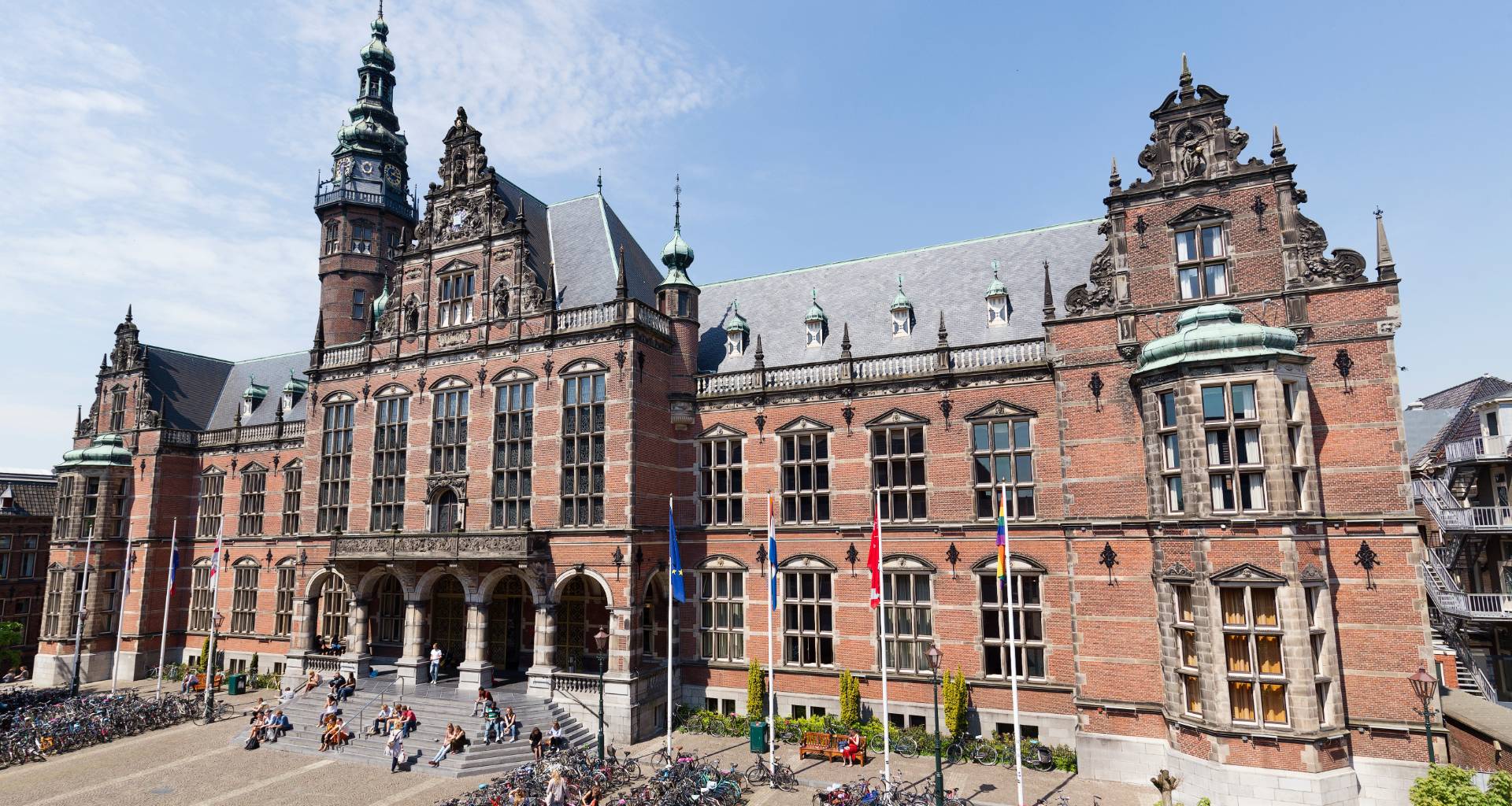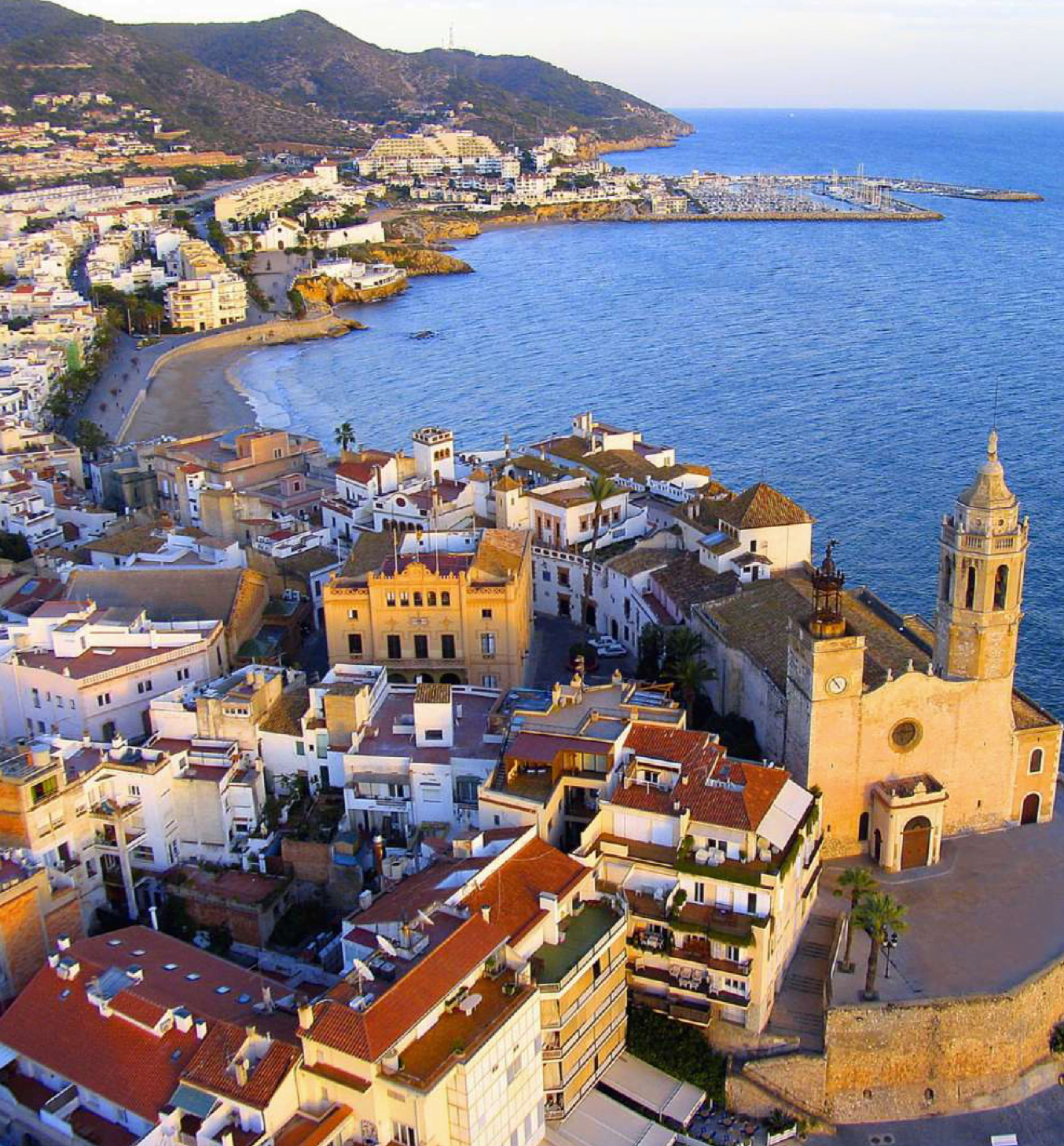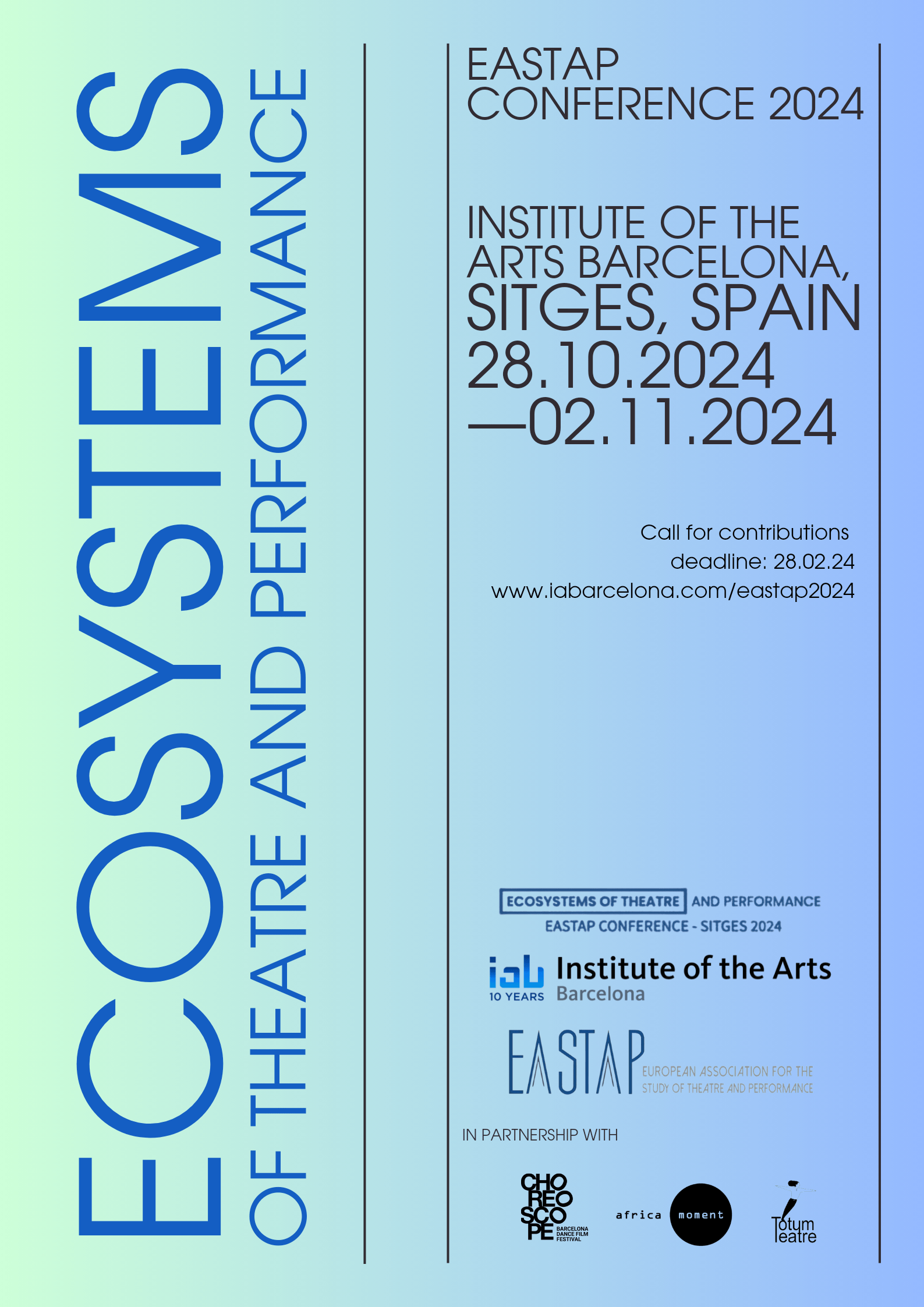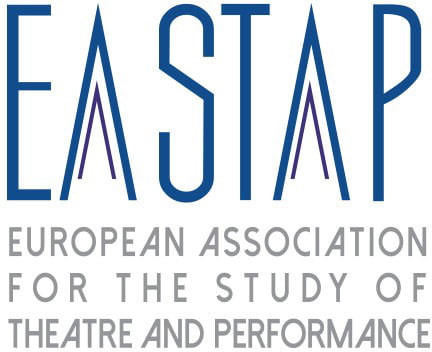Welcome to EASTAP
The European Association for the Study of Theatre and Performance brings together scholars and artists to promote research into stage practice in Europe
Latest news
2026 EASTAP Annual Conference
Waiting for the Barbarians
Wednesday 23 – Saturday 26 September 2026
University of Groningen
in collaboration
NITE / Club Guy & Roni, Grand Theatre Groningen, Station Noord, Het Houten Huis, Theater De Steeg, De Noorderlingen.
The 2026 EASTAP conference is organized in parallel with Guy Weizman’s staging of Philip Glass’s opera Waiting for the Barbarians (Nederlandse Reisopera), to premiere on 26 September 2026 at SPOT Groningen.
Taking its title from the production of Glass’s opera, EASTAP conference explores the dramaturgical, philosophical, and political configurations of waiting in theatre and performance. The opera itself adapts J.M. Coetzee’s novel of the same name, itself a reimagining of C.P. Cavafy’s 1904 poem, tracing a genealogy of waiting across literary and theatrical forms. The conference invites contributions that examine how waiting, understood both as a thematic concern and affective condition, operates within theatre and across socio-aesthetic, intermedial, and intertextual engagements with novel, poetry, and opera.
Waiting provides a dramaturgical mechanism that structures theatrical time around the expectations and anticipations of characters and audiences, and the interplay between them. In (high) modernist and postdramatic theatre, the suspense gives way to suspension, rooted in repetition, cyclical patterns, and stagnation. This suspension disrupts the teleology of plot-driven drama and its progression towards a resolution, turning the performance into a metatheatrical self-reflective apparatus. From Beckett’s Waiting for Godot to Gao Xingjian’s The Bus Stop, waiting transforms duration into tension around the imminent arrival, perpetually anticipated yet continuously deferred or absent; an acute sense or perhaps even a ‘structure of feeling’ that speaks to the present socio-political condition, both locally and globally.
When the awaited figure is imagined as the barbarian, as in Cavafy, Coetzee, and Glass, waiting acquires a political inflection. The discourse of barbarism and civilization has long structured artistic and cultural imaginaries, shaping perceptions of Self and Other, empire and subject, citizen and invader, oppressor and oppressed. This opposition can be traced to Greek theatre, where tragic narratives constructed the “barbarian” as the negative mirror-image of Greek civic values. But the “barbarian” has long circulated within Western artistic discourses not only as a construct of the Other, but also as a means to define the radical Self. The Futurists famously self-proclaimed as barbarians (‘Ebbene, sì, siamo barbari!’, Marinetti 1914), while the Surrealists declared, ‘There is no doubt that we are barbarians, because a certain kind of civilization disgusts us’ (‘La Révolution surréaliste’, 1925). Such statements, characteristic of the historical avant-garde’s construction of the primitive as an antithesis to dominant cultural and social paradigms, nevertheless reinforce the binary between civilization and barbarism.
Taking account of these discourses and their artistic articulations, the conference seeks to explore how the image of the barbarian mobilizes collective imagination, memory, and action. The anticipated barbarian elicits responses ranging from feelings of powerlessness and inaction to engagement with rhetoric of conflict and war. Waiting for the barbarian, therefore, enacts a dramaturgy of social and political imaginaries that is anything but passive. It compels us to give reckoning to the injurious and transformative power of naming and representing within the institutions that define a civilization, while recognizing the barbarian within the Self.
EASTAP 2026 invites scholarly and artistic debate on ‘waiting for the barbarian’ as a generative temporal and imaginative framework that produces new forms of identification, collective being, and political life.
Read moreEASTAP Annual Conference 2025 Decentre | Distribute | Democratise
We are delighted to announce the EASTAP (European Association for the Study of Theatre and Performance) Annual Conference 2025, hosted by Guildhall School of Music & Drama, London, under the theme Decentre | Distribute | Democratise.


EASTAP Annual Conference 2024 - Ecosystems of Theatre and Performance
We are delighted to announce EASTAP’s 2024 Annual Conference, hosted by the Institute of the Arts Barcelona in Sitges, Spain. The conference is entitled “Ecosystems of Theatre and Performance”. As host city, Sitges has been a biosphere destination since 2016, and is committed to environmental, economic, and social sustainability.
The conference aims to bring together international scholars, practitioners and researchers, inviting submissions for papers and presentations that delve into different aspects of this theme and offer fresh insights into the dynamic field of theatre and performance.
We aim to explore the terminological shift from ‘ecology’ to ‘ecosystems’ within the realm of theatre and performance. “Ecosystems of Theatre and Performance” invites proposals that explore the scientific-environmental, figurative, and economical dimensions of dynamic artistic systems.
Read moreEASTAP24 Conference
Call for Papers
Download the Call for Papers from the link below. Call for Papers Deadline EXTENDED to 17 March 2024!
Read more
Newsletter subscription
Sign up to EASTAP Newsletter

Journal
Discover the latest issue of The European Journal of Theatre and Performance. Moving from Russia to France to Japan, then crossing the Atlantic to Latin America, and having a final stop in Iceland, EJTP issue 7 travels across various geographical regions in a way that reflects the scope and aims of EJTP. For even while this journal is called the European Journal of Theatre and Performance, it is acutely…
Read more
Not a member of EASTAP?
Choose your yearly membership level.
Need to renew your membership?




